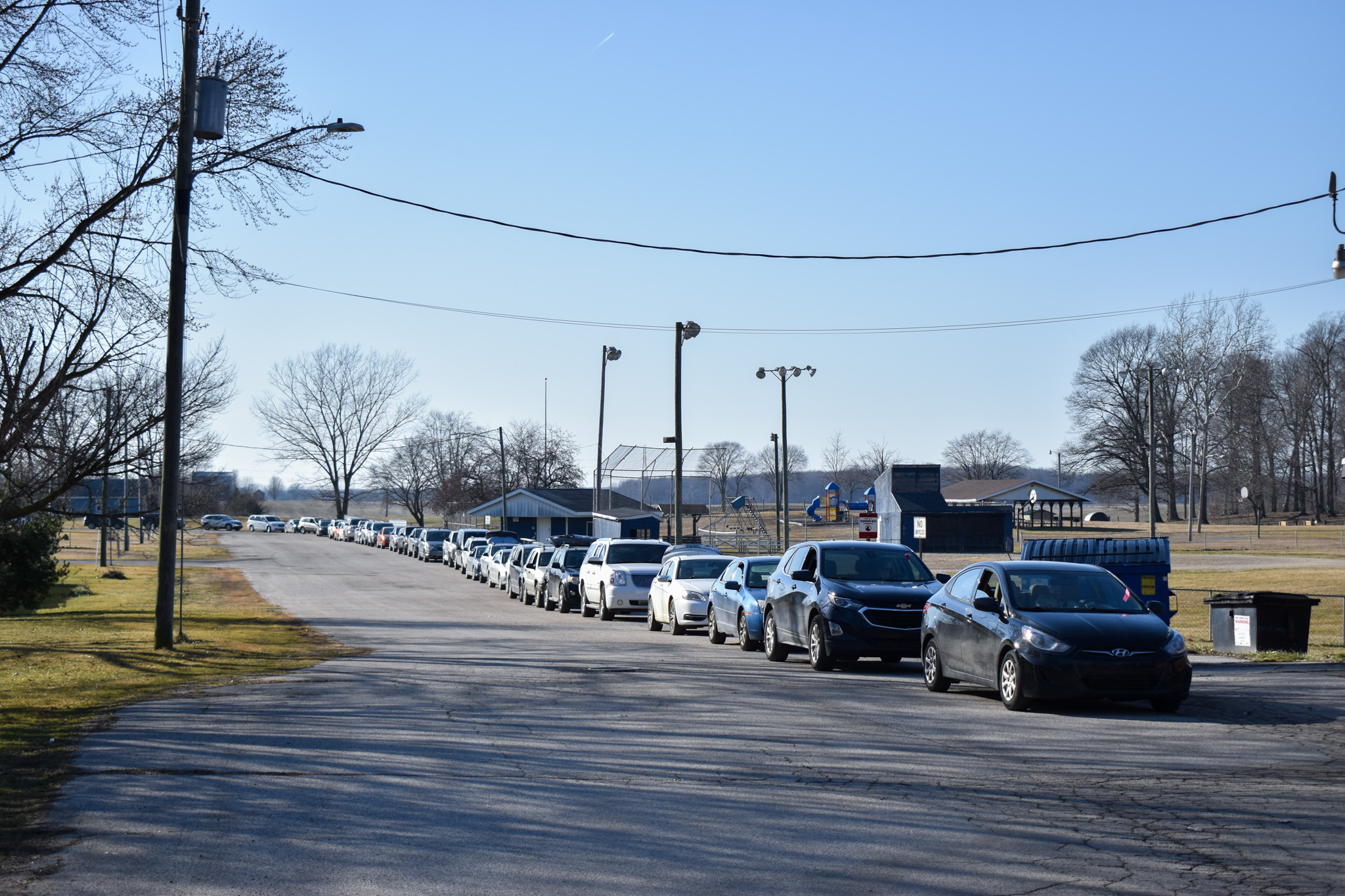
The Need for Food in Our Service Area
1 in 7 neighbors in West Michigan and the Upper Peninsula is at risk of hunger, right now.
This includes nearly 80,000 children. This risk means they are food insecure. Food insecurity is defined as a lack of consistent access to enough food for an active, healthy life.
People from all walks of life can become food insecure, and many will find themselves in need at some point during their lifetime. In West Michigan and the Upper Peninsula, many neighbors are just one job loss or medical crisis away from not having enough to eat. The COVID-19 pandemic revealed how close many of us are to being in need: 1 in 5 U.S. residents sought help from a charitable food provider at some point
during the pandemic.
Why does food insecurity exist?
System Gaps
Like an ecosystem, Michigan’s food system is made up of many parts—including the government, farmers and consumers. They all must work together for the food system to function properly. When prices rise, government support isn’t sufficient or another disruption occurs, the system falls out of balance. These disruptions mean that, sometimes, the food people need can’t make its way through the system and get to them as it should.
Insufficient Income
The majority of food-insecure neighbors live in a household where at least one member is employed. Those who aren’t are usually retired or not working due to a disability. This means that many neighbors hold jobs that don’t pay enough to make ends meet, or that pay just enough to live paycheck to paycheck. In the latter situation, one unexpected expense can rob them of their self-sufficiency.
Lack of Access to Nourishing Choices
The ability to access a variety of nourishing yet affordable food is a bit like a power grid. Just like we need a power grid that delivers electricity to all the parts of our country, we also need a grid that allows a wide variety of nutritious foods to move to all parts of our country. Right now, that grid is well-developed in some areas and patchy or even non-existent in others. In rural and low-income urban regions, nutritious food coverage is often “patchy”—when nutritious options are available, they’re costly, inaccessible or both.
What happens when someone is food insecure?
Neighbors may be anxious about where their next meal is coming from. Even if not experienced every day, this uncertainty is a negative experience, especially for children. Their and ability to focus in school may suffer as a result.
Neighbors may be forced to choose options that don’t meet their nutritional needs, whether due to affordability or access. Neighbors living in food-insecure households are at greater risk of chronic disease including stroke, coronary heart disease, diabetes, arthritis, and hypertension.
Neighbors may run out of food before they can buy more. If put in this situation, they may be forced to skip meals. Tough choices like these can have devastating effects—high blood pressure, lack of concentration, severe depression and more.
Learn More About Why Food Banks are Needed
Map the Meal Gap data
Impacts of Hunger
Veteran & Military Hunger
Senior Food Insecurity Studies
Food Insecurity in Black Communities
Food Insecurity in Hispanic & Latinx Communities
Fighting Food Waste
2021 Mobile Food Pantry Program Report
Click here for ideas for reducing food waste
